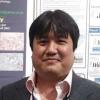Editorial Board
 |
Prof. Koichi Sakakura, M.D., Ph.D. |
|
Biography : After graduating Gunma University School of Medicine and registration as MD in 1999, Koichi Sakakura, MD, PhD had trained in Department of Otolaryngology-Head and Neck Surgery, Gunma University Hospital and its affiliated hospital for 2 years as a resident doctor. In Gunma University Graduate School of Medicine, he started his carrier as a physician scientist in the field of otology (pediatric acute otitis media and equilibrium) and published 3 scientific paper. Then his research interest shifted to oncology, especially to cancer immunology. Under the guidance of his mentor Dr. K. Chikamatsu, Dr. Sakakura earned PhD degree in 2005. He had served as a clinical fellow in the department in the university hospital for 2 more years. Until 2007, he had published several articles about cancer immunology with Dr. Chikamatsu in patients with head and neck cancer (HNC): dendritic cells (DC) and NK cells in sentinel lymph nodes, DC maturation and T-cell subsets in circulation of HNC patients, induction of p53 antigen-specific immune response by cytotoxic T cell (CTL) from HNC patients, and immunological characteristics of cancer stem cell. Dr. Sakakura moved to University of Pittsburgh Cancer Institute (UPCI), PA, USA in 2007, worked in Drs. T.L. Whiteside’s and A.B. DeLeo’s labs, and involved in T-cell apoptosis by microvesicles form cancer cells and induction of MAGE-3/CSPG4-specific CTL by DC vaccine. Then he transferred to Drs. S. Ferrone’s and X. Wang’s lab in UPCI to engage in development of monoclonal antibodies against HLA class II antigen machinery molecules, and in immunohistochemical analyses of tumor antigen CSPG4 in various malignancies. He was named as a co-author in various high impact journals as Journal of National Cancer Institute and Cancer Research, and had stayed for 3 years in UPCI until 2010. He returned to Japan as a chief surgeon of otolaryngology-head and neck surgery in National Hospital Organization Shizuoka Medical Center, and awarded Grant-in Aid for Young Scientist from the Ministry of Education, Culture, Sports, Science and Technology for the development of cancer immunotherapy utilizing antigen presentation by autophagy. Dr. Sakakura was engaged as an assistant professor in 2012, and had been an associate professor since 2016 until 2017 in Department of Otolaryngology-Head and Neck Surgery, Gunma University Graduate School of Medicine. His current interest in cancer immunology is dynamics of myeloid cells such as macrophages, monocytes and myeloid-derived suppressor cells in tumor microenvironments and systemic circulation in patients with HNC. He has published 40 scientific papers to date mainly in oncology area, including Laboratory Investigation and Cancer Science as a corresponding author, and was recently awarded Grant-in Aid for Scientific Research to elucidate monocyte subsets in HNC patients. In addition, he had also conducted numerous daily surgeries. His subspecialty is swallowing disorder and its rehabilitation. He is a founder, a chief and a Part-time Professor of Swallow Support Team in Gunma University Hospital, and a leading Part-time Physician for Dysphagia Round Team in National Hospital Organization Shibukawa Medical Center. In 2018, Dr. Sakakura resigned tenure-truck faculty position. Then He established Laboratory for Head and Neck Immunology in Gunma ENT Clinic & Lab. This novel clinic can enroll a lot of patients’ clinical data and samples can be analyzed by the lab. He is a member of American Association for Cancer Research, American Thyroid Association, American Head and Neck Society and Dysphagia Research Society. He is also members of editorial board offices in over 100 scientific/medical journals Additionally, he has a lot of experience of oriental medicine using Kampo drugs over 15 years. |
|
| Research Interest : Otorhinolaryngology, head and neck surgery, Equilibrium and VEMP, thyroid diseases, dysphagia and swallowing function, nutrition, infectious diseases, pediatric surgery, and oriental medicine. |
|
QUICK LINKS
- SUBMIT MANUSCRIPT
- RECOMMEND THE JOURNAL
-
SUBSCRIBE FOR ALERTS
RELATED JOURNALS
- Journal of Cancer Science and Treatment (ISSN:2641-7472)
- Archive of Obstetrics Gynecology and Reproductive Medicine (ISSN:2640-2297)
- Journal of Pathology and Toxicology Research
- Journal of Blood Transfusions and Diseases (ISSN:2641-4023)
- International Journal of Medical and Clinical Imaging (ISSN:2573-1084)
- International Journal of Internal Medicine and Geriatrics (ISSN: 2689-7687)
- Journal of Oral Health and Dentistry (ISSN: 2638-499X)


